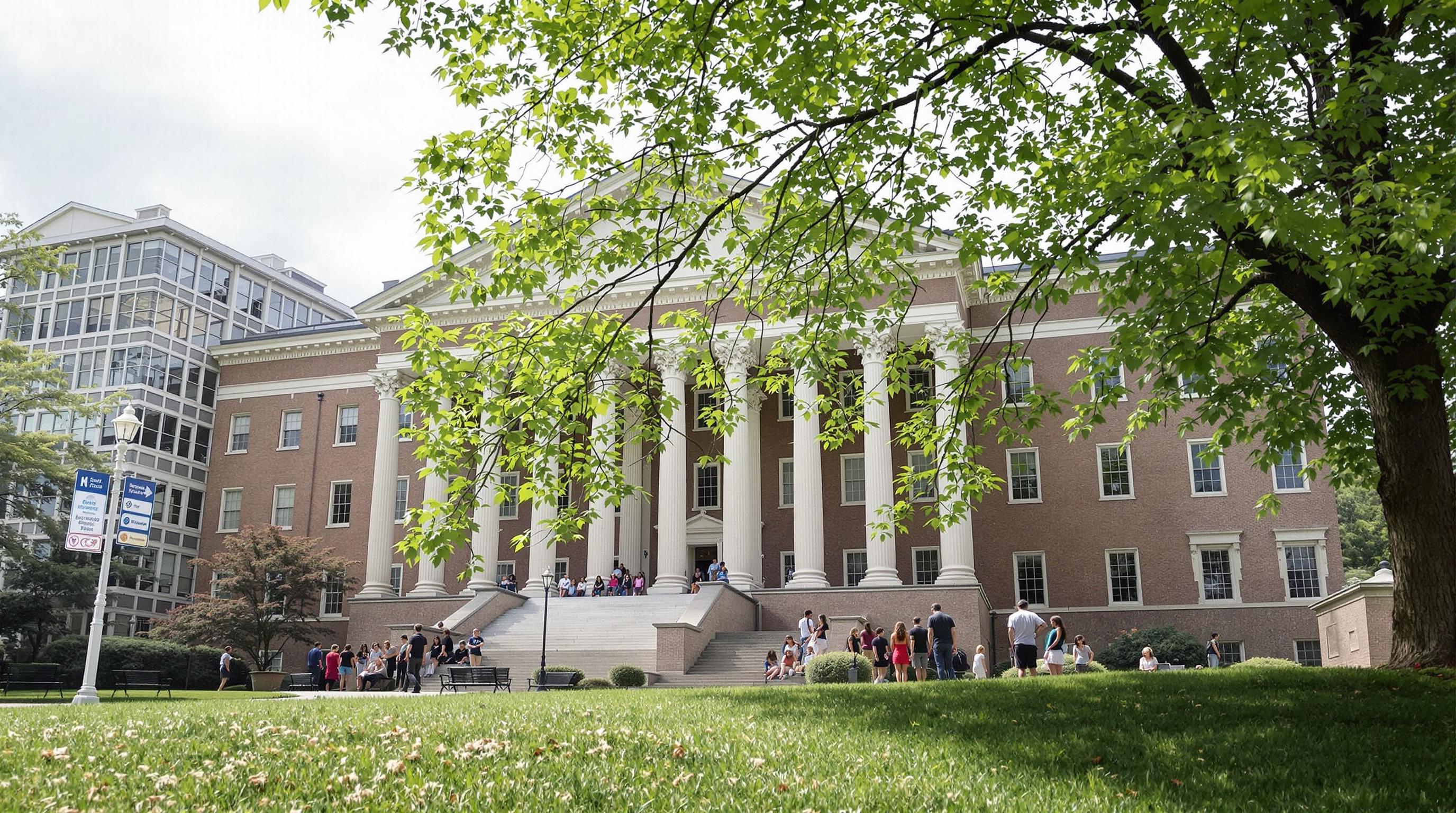Featured Articles
- 9 Hidden Financial Aid Opportunities Every College Applicant Should Explore Before Applying
- From Drones to Diversity: The Surprising Role of Tech in Shaping Modern College Admissions Strategies
- How Midnight Email Strategy and Timing Secretly Influence College Acceptance Odds More Than You Think
- "Micro-Majors: The Rise of Niche Fields and Their Impact on College Admissions Trends"
- The Impact of AI-Generated Essays on Authenticity in College Admissions: A New Frontier or a Recipe for Disaster?
From Drones to Diversity: The Surprising Role of Tech in Shaping Modern College Admissions Strategies
From Drones to Diversity: The Surprising Role of Tech in Shaping Modern College Admissions Strategies
The landscape of college admissions is rapidly evolving, influenced by groundbreaking technologies and a growing emphasis on diversity. In this article, we'll explore how tools ranging from drones to data analytics are shaping modern admissions strategies while fostering a more inclusive environment for prospective students.
The Tech Shift
Welcome to the digital age of college admissions! From the usage of artificial intelligence to advanced data analytics, technology now plays a vital role in who gets into college and why. Did you know that according to a survey by Education Dive in 2022, 65% of colleges are utilizing some form of AI in their admissions processes? This statistic illustrates a trend that’s hard to ignore.
Drones: A New Perspective
Let's talk about drones—yes, you read that right! A college in Southern California recently employed drones to provide virtual campus tours during the coronavirus pandemic. The university sought to engage a geographically diverse pool of applicants who couldn't visit in person, embracing innovation to showcase their campus in 3D. Aerial footage allows prospective students to see the beautiful highlights of the campus, such as the sprawling quad and various athletic facilities from angles that traditional tours can't offer.
The Inclusion Equation
Now, while tech can help enhance the admissions process, it's equally important to address the pressing need for diversity in these strategies. As Harvard admissions officer Will Moss noted, admissions offices are tasked with balancing merit and diversity, which has sparked a powerful conversation on what criteria guide these decisions. Historical data supports this notion: the U.S. Census Bureau reported that by 2044, more than half of the population will be composed of racial and ethnic minorities. This demographic shift necessitates a more inclusive approach, enabling institutions to reflect society as a whole.
The Data Game
At the core of tech in admissions lies data collection. Today, colleges analyze an array of factors, from GPA to extracurricular activities to even social media presence. A fascinating study conducted by the National Association for College Admission Counseling (NACAC) revealed that 40% of admissions officers looked at applicants’ social media activity as part of their evaluation. This approach raises eyebrows—after all, what can your Instagram feed tell an admissions officer about your academic potential?
Case Study: The University of Michigan
The University of Michigan is a noteworthy case in terms of utilizing technology effectively. After noticing a gap in diversity among their applicants, the admissions team began using predictive analytics to identify students from underrepresented communities. This tool allowed them to develop outreach initiatives tailored to specific demographics, raising application numbers by 20% within three years. A direct result? The increased diversity on campus contributed to a richer, more dynamic learning environment.
Personalized Communications
Have you ever felt that blanket emails you receive from colleges are as dry as last week’s toast? Well, fear not! Institutions are catching on to the importance of personalized communication, facilitated by CRM (Customer Relationship Management) systems. These platforms enable colleges to tailor their outreach and engagement strategies, sending relevant information based on a student’s interests and application stage. A 2021 report from Education Dynamics stated that personalized communication can boost student engagement by more than 50%. Talk about giving every applicant the VIP treatment!
The Humor in Admissions
Speaking of VIP treatment, have you ever wondered what goes through an admissions officer's mind while wading through an avalanche of applications? Fordham University’s admissions director shared a light-hearted moment—“Last year we had a student write an essay about their pet fish, and let’s just say it was quite the fishy situation!” While humor may not be a recommended strategy, memorable essays can make an applicant stand out in a sea of “my passion for engineering” responses.
Embracing the Change
However, as we dig deeper into the tech-driven admissions process, we must also consider the ethical implications. Will the reliance on algorithms inadvertently favor certain demographics while excluding others? An article in the Chronicle of Higher Education highlights concerns about AI bias, asserting that technology must be used thoughtfully to support equitable practices, not overshadow them.
Beyond Just Numbers
It's easy to fall into the trap of viewing admissions as nothing more than numbers and metrics. Institutions like Pomona College focus on a holistic approach to admissions, which includes personal essays, recommendations, and interviews. This method showcases not just academic prowess but also the character and potential of each applicant. A compelling personal story can elevate an otherwise average application in the eyes of admissions committees, challenging the notion that raw data is all that matters.
Global Reach with Technology
Here comes another exciting aspect: technology has expanded the reach of colleges across the globe. Colleges can now virtually connect with students from diverse backgrounds, utilizing platforms like Zoom and cloud-based assessment tools for online interviews and feedback. This global outreach enables institutions to cast a wider net, capturing the attention of students who might not have considered applying otherwise. As a result, UC Berkeley reported a 35% increase in international applications following their adoption of a more inclusive online outreach strategy.
Challenges to Consider
With such remarkable advancements come formidable challenges. The digital divide remains a significant issue, affecting students’ access to technology and the internet. A 2022 report from the Pew Research Center highlighted that approximately 14% of teens lacked reliable internet access to study remotely. This scenario raises questions about fairness in admissions—how can colleges ensure they’re reaching all students if some can't connect?
The Future of Admissions
As we look forward, the future of college admissions appears robust yet nuanced. The integration of tech, coupled with an unwavering commitment to diversity and inclusion, sets the stage for a more equitable admissions landscape. By instilling human-centered values into tech-driven processes, institutions can create a system that embraces students’ unique stories and backgrounds.
Conclusion: A New Dawn
Whether it's drones overhead or algorithms poring over academic records, technology has reshaped how colleges assess potential students and embrace diversity. As admissions evolve, students can expect a more inclusive, nuanced approach that celebrates their individual talents while fostering a vibrant academic community. So brace yourselves—this isn’t just the future of admissions; it’s the dawn of a new age where technology and diversity walk hand in hand toward a better tomorrow.




